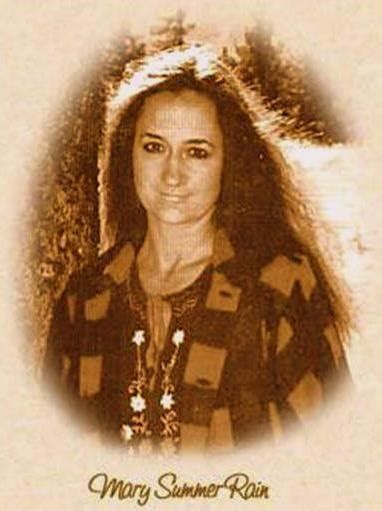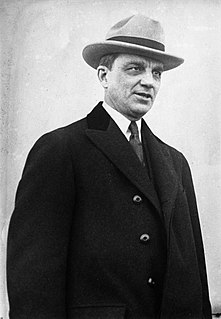A Quote by Euripides
Knowledge is not wisdom: cleverness is not, not without awareness of our death, not without recalling just how brief our flare is. He who overreaches will, in his overreaching, lose what he possesses, betray what he has now. That which is beyond us, which is greater than the human, the unattainably great, is for the mad, or for those who listen to the mad, and then believe them.
Related Quotes
Yet there are those who wonder. There are those who have gentle stirrings. And there are those who have stepped upon the beautiful threshold of awareness - all on the verge of perceiving that which there is to see. To these ones, I say, open your exquisite senses. Look with fine clarity into that which is beyond and beneath, within and without. In these coming critical times, listen to and heed the directives of your spirits that retain the high wisdom you are just now perceiving.
Brutes are deprived of the high advantages which we have; but they have some which we have not. They have not our hopes, but theyare without our fears; they are subject like us to death, but without knowing it; even most of them are more attentive than we to self-preservation, and do not make so bad a use of their passions.
If we can combine our knowledge of science with the wisdom of wildness, if we can nurture civilization through roots in the primitive, man's potentialities appear to be unbounded, Through this evolving awareness, and his awareness of that awareness, he can emerge with the miraculous-to which we can attach what better name than 'God'? And in this merging, as long sensed by intuition but still only vaguely perceived by rationality, experience may travel without need for accompanying life.
Consider the pains which martyrs have endured, and think how even now many people are bearing afflictions beyond all measure greater than yours, and say, "Of a truth my trouble is comfort, my torments are but roses as compared to those whose life is a continual death, without solace, or aid or consolation, borne down with a weight of grief tenfold greater than mine."
We cannot find God without God. We cannot reach God without God. We cannot satisfy God without God - which is another way of saying that all our seeking will fall short unless God starts and finishes the search. The decisive part of our seeking is not our human ascent to God, but His descent to us. Without God's descent there is no human ascent. The secret of the quest lies not in our brilliance but in His grace.
The first step to the knowledge of the wonder and mystery of life is the recognition of the monstrous nature of the earthly human realm as well as its glory, the realization that this is just how it is and that it cannot and will not be changed. Those who think they know how the universe could have been had they created it, without pain, without sorrow, without time, without death, are unfit for illumination.
Science and technology have freed humanity from many burdens and given us this new perspective and great power. This power can be used for the good of all. If wisdom governs our actions; but if the world is mad or foolish, it can destroy itself just when great advances and triumphs are almost without its grasp.
Culture has lead us to betray our own aboriginal spirit and wholeness, into an ever-worsening realm of synthetic, isolating, impoverishing estrangement. Which is not to say that there are no more everyday pleasures, without which we would loose our humanness. But as our plight deepens, we glimpse how much must be erased for our redemption.
A child born today in the United Kingdom stands a ten times greater chance of being admitted to a mental hospital than to a university ... This can be taken as an indication that we are driving our children mad more effectively than we are genuinely educating them. Perhaps it is our way of educating them that is driving them mad.
Because we are limited in our knowledge, even the sanest of us are slightly insane. Our limitations are a kind of madness, and we can only choose to deny we are mad, and so descend into a dark spiral of total insanity, or accept we are mad and embark on a quest to regain our true and wholesome sanity
The way of life can be free and beautiful, but we have lost the way. Greed has poisoned men's souls, has barricaded the world with hate, has goose-stepped us into misery and bloodshed. We have developed speed, but we have shut ourselves in. Machinery that gives abundance has left us in want. Our knowledge has made us cynical; our cleverness, hard and unkind. We think too much and feel too little. More than machinery, we need humanity. More than cleverness, we need kindness and gentleness. Without these qualities, life will be violent and all will be lost.
Were it possible for us to see further than our knowledge reaches, and yet a little way beyond the outworks of our divinings, perhaps we would endure our sadnesses with greater confidence than our joys. For they are the moments when something new has entered into us, something unknown; our feelings grow mute in shy perplexity, everything in us withdraws, a stillness comes, and the new, which no one knows, stands in the midst of it and is silent.
Imagine a world in which every single person on the planet is given free access to the sum of all human knowledge. Wikis give us a place where anyone who is kind, thoughtful and intelligent can come and join us in building a better and more rational world. Jimmy Wales Guard well within yourself that treasure, kindness. Know how to give without hesitation, how to lose without regret, how to acquire without meanness.
Our virtues themselves are not free and floating qualities over which we retain a permanent control and power of disposal; they come to be so closely linked in our minds with the actions in conjunction with which we have made it our duty to exercise them that if we come to engage in an activity of a different kind, it catches us off guard and without the slightest awareness that it might involve the application of those same virtues.







































